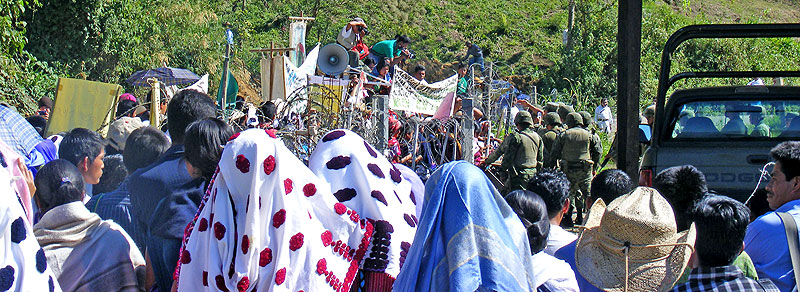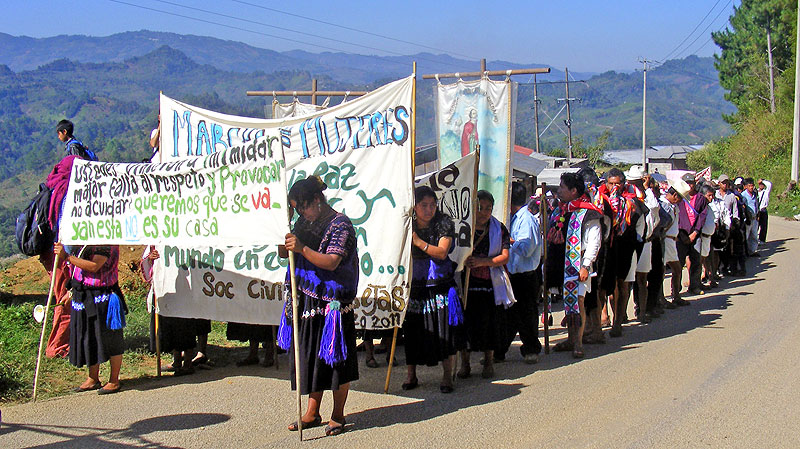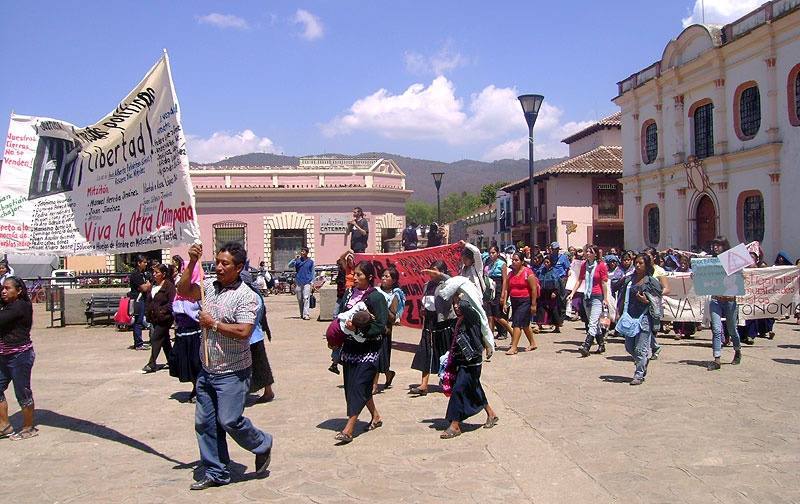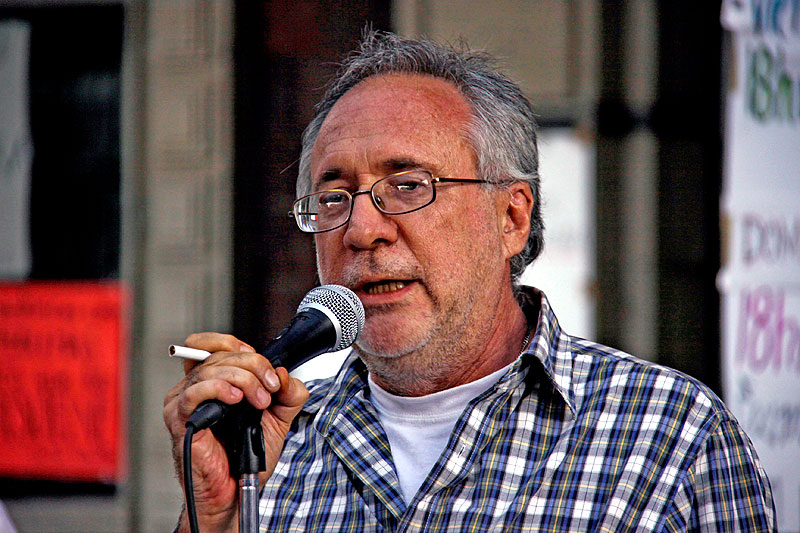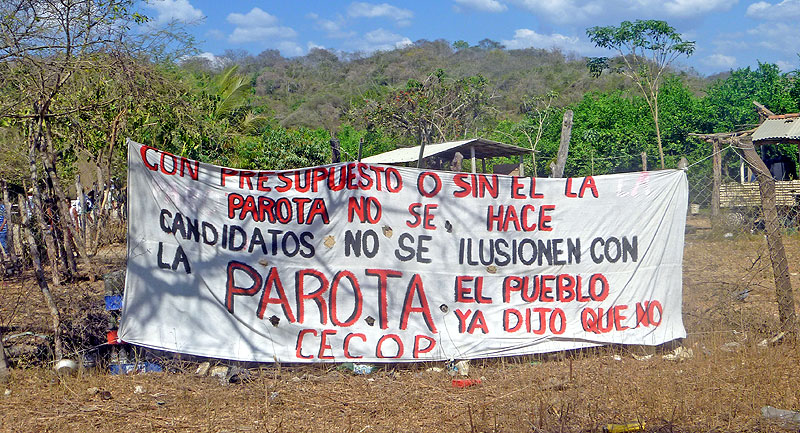SIPAZ Activities (From mid-November 2010 to mid-February 2011)
28/02/2011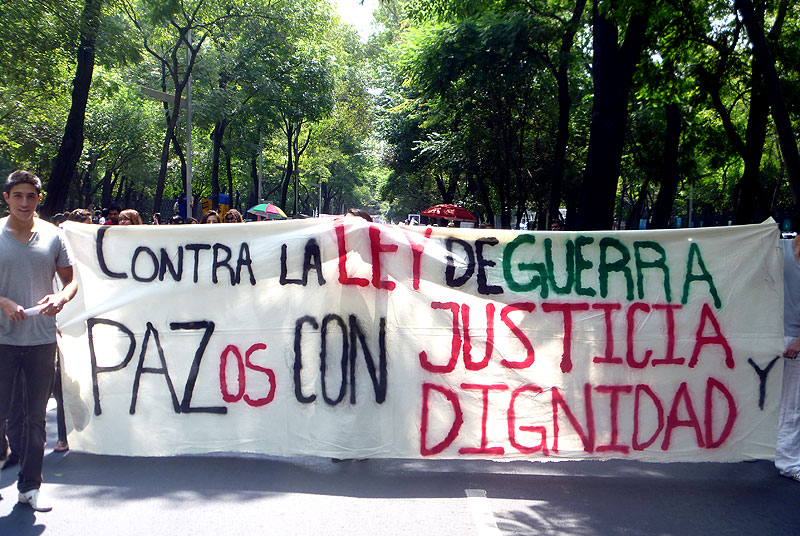
ANALYSIS: Current Events: Seeking alternatives to increasing militarization
31/08/2011This year in Chiapas women and men united to celebrate the centennial of the institution of International Women’s Day. During 7 and 8 March, some 5000 persons in solidarity and members of different social and civil groups from 15 municipalities denounced the situations that women face and demanded responses to their historical demands, which remain to be fulfilled/completed.
Perhaps consciously or not, due to their being raised to concern themselves in the first place with others, no one knows better than women that the personal is political, and the political is personal. From personal testimonies used expressing a large range of emotions to the raising of general problems, the events on this day allowed for the exploration of what is happening in Chiapas and the country from a distinct view and one in solidarity with cases of other women in other regions.
All the pronunciations made reference to the worsening of the situation due to the prevailing violence and the militarization of the country. The most challenging activity in this sense was carried out by some 500 members of the Civil Organization Las Abejas of Acteal (a community in Chenalhó in which 45 persons were murdered by paramilitaries on 22 December 1997). They marched for 3 kilometers, passing the military base at Majomut, where they sought to engage in prayer with “our brothers in solidarity,” but were denied entry. They addressed the soldiers with these words: “Leave here, because this is not your home! You say that you are here to protect us, but this is not true […]. You also were born of a woman, you have wives, sisters, or daughters, and when you attack us, you are attacking them as well. Do not contribute more to the violence suffered by women.”
Structural violence affects women in daily worries such as having enough money to provide food for their families and in the conviction that they must seek out the justice system: “it is not true that in Chiapas and in Mexico women have guaranteed access to justice and that our life conditions have improved. On the contrary, our rights continue to be ignored, we continue to be used by means of official programs such as Opportunities to demonstrate the supposed well-being of the population, when in reality neither our time nor our decisions are respected but are rather imposed. For she who does not conform, the punishment is economic or can even amount to expulsion. This reflects once again the governmental policy of using poverty to overcome and do away with resistances” (Final declaration of an assembly in CIDECI-Unifiers held on 7 March in San Cristobel de Las Casas).
In addition, it was noted by several sources that repression has worsened for those who organize themselves in defense of their rights. Sometimes women are “targets,” and at other times “the other face” of repression: “We are persecuted, raped, deprived of liberty, murdered. Our daughters, sons, brothers, mothers, and fathers also suffer the consequences of harassment to which we are subjected for defending and demanding our rights. In this struggle we have lost many of our loved ones as well as female comrades, and those responsible continue unpunished” (Declaration from the 7 March assembly). Ejidataria women from San Sebastián Bachajón, reunited in a roadblock a few meters from the crossroads that leads to the Agua Azul waterfalls, demanded for example the release of their imprisoned comrades jailed in February after a confrontation regarding the control-point at the entrance to the Agua Azul waterfalls.
Many testimonies and denunciations on this day indicated the discrimination faced by women as regards access to land or to inheritance rights for the same, and their helplessness in light of not having “a piece of land on which to sow” in case that they lose their husbands to death or abandonment. The communiqué of the 7 March assembly emphasizes, “We do not want the government to continue looting our territory, which belonged to our ancestors. For this reason we conclude in this assembly that the land also is ours, because we work it together with men, because we respect it the same as men do, because we know how to care for it as well as men do. If it in fact is ours, we will also defend it together with men.”
Despite pain, despair, and risks, the final declaration of the Chiapas department of the World March of Women, which was read the 8th of March 2011 after a political performance in the cathedral’s square, leaves it clear: “We have now broken the silence and we will not remain quiet. The state will not silence the voices of the assaulted, the persecuted, the murdered, the disappeared, because our voice will continue stressing the demands of justice until we realize them. We will not forget why forgetfulness reproduces impunity and represents yet another affront for our murdered comrades and for all those women who struggle and resist daily.”

